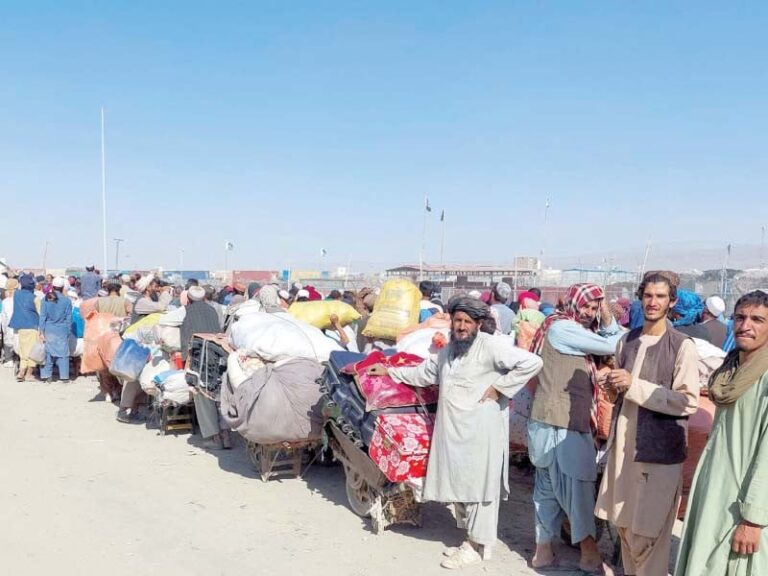The repatriation process for Afghan refugees residing illegally in Pakistan will commence today as the deadline for voluntary return expired on March 31.
The government had also requested details of Afghan students in Khyber-Pakhtunkhwa by March 27 to update the Foreign National Security Cell’s dashboard, which tracks foreign nationals in the country.
This policy of expelling illegal immigrants is part of Pakistan’s broader security efforts in response to growing terrorist attacks, which Islamabad attributes to groups operating from Afghan soil.
So far, 878,972 Afghan refugees have voluntarily returned to Afghanistan, according to Radio Pakistan. However, human rights group Amnesty International has criticised Pakistan’s repatriation plan, describing it as “opaque” and expressing concerns that the March 31 deadline would worsen the refugees’ situation.
Pakistan currently hosts 2.1 million documented Afghan refugees, with many others living in the country without legal documentation. Approximately 1.3 million of these refugees have received Proof of Registration cards, with more than half of them residing in Khyber-Pakhtunkhwa (K-P).
The repatriation affects a large number of Afghans who have lived in Pakistan for decades, including many born in the country who have never lived in Afghanistan. Peshawar hosts the largest population of Afghan nationals, many of whom run businesses and work in the city.
In 2023, a deadline for unregistered foreigners led to the return of many Afghan nationals, and similar voluntary return camps have been set up for those returning now.
Earlier this month, the Taliban urged Pakistan and Iran to implement a structured and gradual repatriation process for Afghan refugees, emphasising the need to avoid forced deportations and acknowledging the challenges faced by returnees in Afghanistan.

